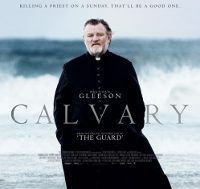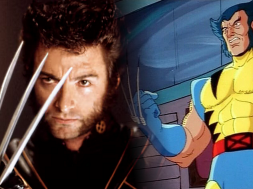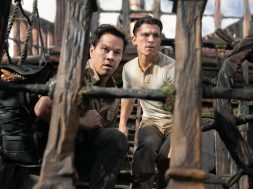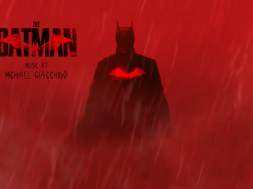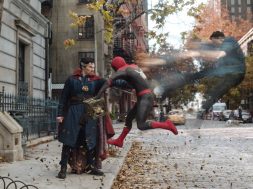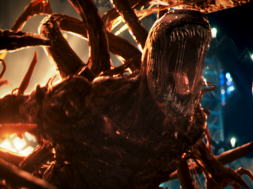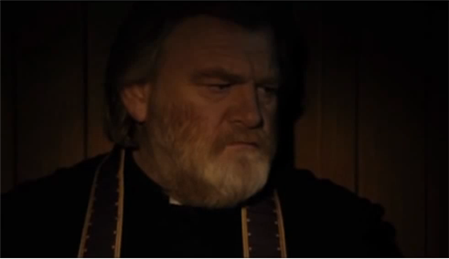
Calvary is set in a village in the Irish county of Sligo. Brendan Gleeson, a Catholic priest, is taking confession at his church when he is given a death sentence by a member of his congregation with a grudge against the Church. He is given a week to put his affairs in order. The film details the week leading up to the encroaching confrontation. All that is in the trailer so there are no spoilers, and for a change this review is (practically) spoiler-free, though you should consider yourselves forewarned.
The first thing that must be said of the film is the quality of its photography. It gives a view of the Irish countryside the likes of which I’ve encountered before (though I accept my film knowledge is not absent patches). Not to say that part of the world is photographed, simply the photography that hitherto captured the environs you encountered in a book of landscapes – or failing that on a of memorabilia flogged the tourist board.

In Calvary the setting is a fully fledged character off which our protagonist Father James Lavelle plays. Gleeson’s status as God’s lonely man (of the cloth – if that’s not a tautology) is rooted in the remote beauty of Sligo. With an actor of Gleeson’s calibre the scenery is certainly in good company. However, Gleeson is accompanied by a whole swathe of acting talent all of whom orbit his Father James. These fellow players include: Chris O’Dowd, Kelly Reilly, Aidan Gillen, Dylan Moran, Isaach De Bankolé, M. Emmet Walsh, Marie-Josée Croze, Killian Scott and Domhnall Gleeson (the list goes on here http://www.imdb.com/title/tt2234003/). Each of these actors has their moment in the sun. That is to say, all are cast with great effect, though – as the analogy implies – the action does revolve around the heliotropic priest.
The first point of comparison for most will be John Michael McDonagh’s previous work featuring Gleeson: The Guard. The second is In Bruges (written/ directed by Martin McDonagh). Calvary is a much darker film than these. Without wishing to do down the levity of this and JMM’s previous film, the label comedy cannot be applied to Calvary as easily as The Guard. Calvary also has fewer guns compared to In Bruges. Not a good or bad thing in and of itself, though not without interest: lack of firearms notwithstanding, Calvary in terms of genre is comparable to a western. James Lavelle is the sheriff that can no longer keep order. The comparison of that role to the priesthood is obvious, it being a vocation steeped in the language of the flock.
The difficulty of herding is not unclear. He is endowed with religious authority my his Church. Owing to the moral discrepancies that litter that Church’s past it has lost its credibility and by association so has Lavelle. So, despite Lavelle being a sincerely religious and, though flawed, a good man, the parishioners are indignant at their clergyman, finding him presumptuous at best. It is not always clear whether they cannot see the goodness of the man within the organisation or if that is merely a pretext to be dismissive. In either case, the state of affairs mutually frustrate parson and parishioners alike giving the film a prevailing rage that simmers between the lines of dialogue, creating a sustained and compelling tension throughout the film.
However, without wishing for tacit dismissal of the historical approach to the film, it is easy to examine the politics that contextualise the film at the expensive of its other elements.
Gleeson’s character is microcosmic. As synecdoche for the Church, Lavelle’s death is motivated by the belief that the death of a good clergyman will absolve the clergy at large. Yet while the villagers apply to the pastor the sins of his Church, they (perhaps inadvertently) apply their own sins with the same hand. Blaming their Pastor for the sins of his colleagues, the villagers can offload their own anxieties and frustrations onto him. Such an act of cynicism makes him a figure onto whom is projected the sins of the priesthood and the parishioners. In this way the confessor that promises to kill Father Lavelle is the extreme logical conclusion of the blame his fellow townsfolk foist upon there priest in their inability to forgive both others and themselves. The eponymous Calvary is the hill outside Jerusalem where Christ is said to have died. In the allegory that the title proposes, Father Lavelle then is his town’s scapegoat – the story of the Passion being the Christianisation of that same Jewish myth. Consequent of Lavelle’s status as good man his status as a the confessor’s focal point of retribution is perversely of a piece with Catholic theology. It even spells the path to the Church’s own salvation in accordance with the very doctrine it espouses. All the while the film never makes an effort to the alert the audience to its allegorical processes. Curiously, the charm of Calvary is what makes it so different to The Grand Budapest Hotel. That is, it’s unobtrusive: it’s an intelligent film that doesn’t need, nor feel the need to, tell you how intelligent it is.
I must attempt that while it is standard fair to play devil’s advocate or see it both ways I am struggling. Looking at the reviews that the film has garnered its praise is not inconsiderable, though when considering the film’s potential pitfalls a common thread is the issue of tone. Many feel that the film has tonal shifts that are distracting or out of place (though a bulk of those same persons have mentioned it only as aside). On this score I am split. There are scenes that shift the film away from its tone impending dread and claustrophobic hostility. Yet I am not convinced they are out of place. I suspect a possible cause of this complaint is lingering shadow of The Guard. The Guard was a more obvious comedy, albeit a black comedy. As a consequence it can more readily accommodate shifts in tone without a sense of disruption. On the other hand, the shifts of tone found in Calvary are not without conceivable value, such as comic relief. That is not to say Calvary is a comedy. There is an inherent black irony in the twisting of Catholic dogma to conveniently fit a vendetta but it is not a belly laugh as one finds in The Guard. Inspite of it not being a comedy there are comic moments and, in a film with the sustained tension of Calvary, their release provides necessary punctuation. On a secondary note, the shifting tone is helpful to the characterisation of the priest struggling in his vocation. In his forays with both Dylan Moran and Killian Scott he displays wit and levity that attempts to balance the requisite need to find, draw out and nurture goodness whilst against the need to be steadfast and critical, without falling into stridency. So while the inconsistency of tone may be jarring it is not without purpose and certainly not without interest.
In an interview, Gleeson mentions there is an idea germinating for his next collaboration with McDonagh, he alludes to the possibility of it featuring an aggressive paraplegic. I can only wait with great anticipation. Meanwhile, this story of the maligned clergyman will not fail to move you. I cannot recommend this film highly enough.
10/10
